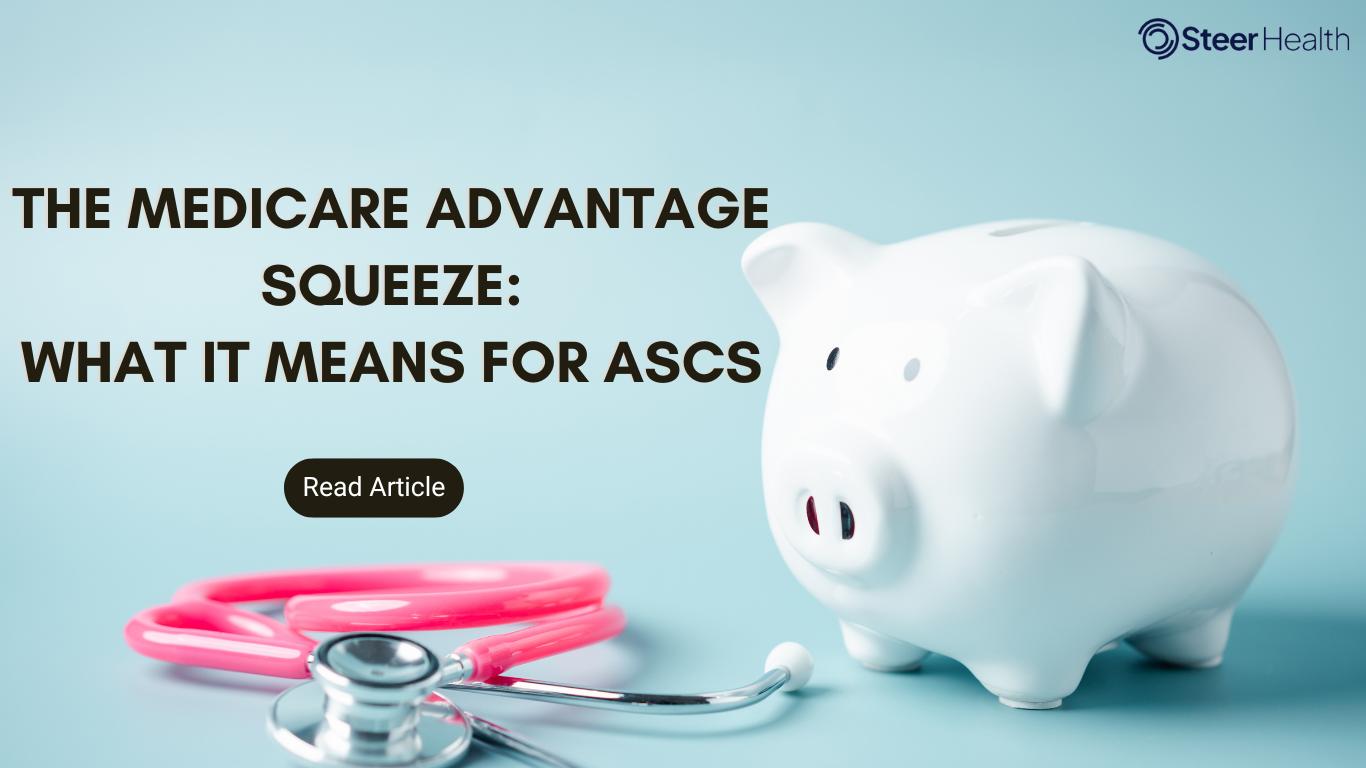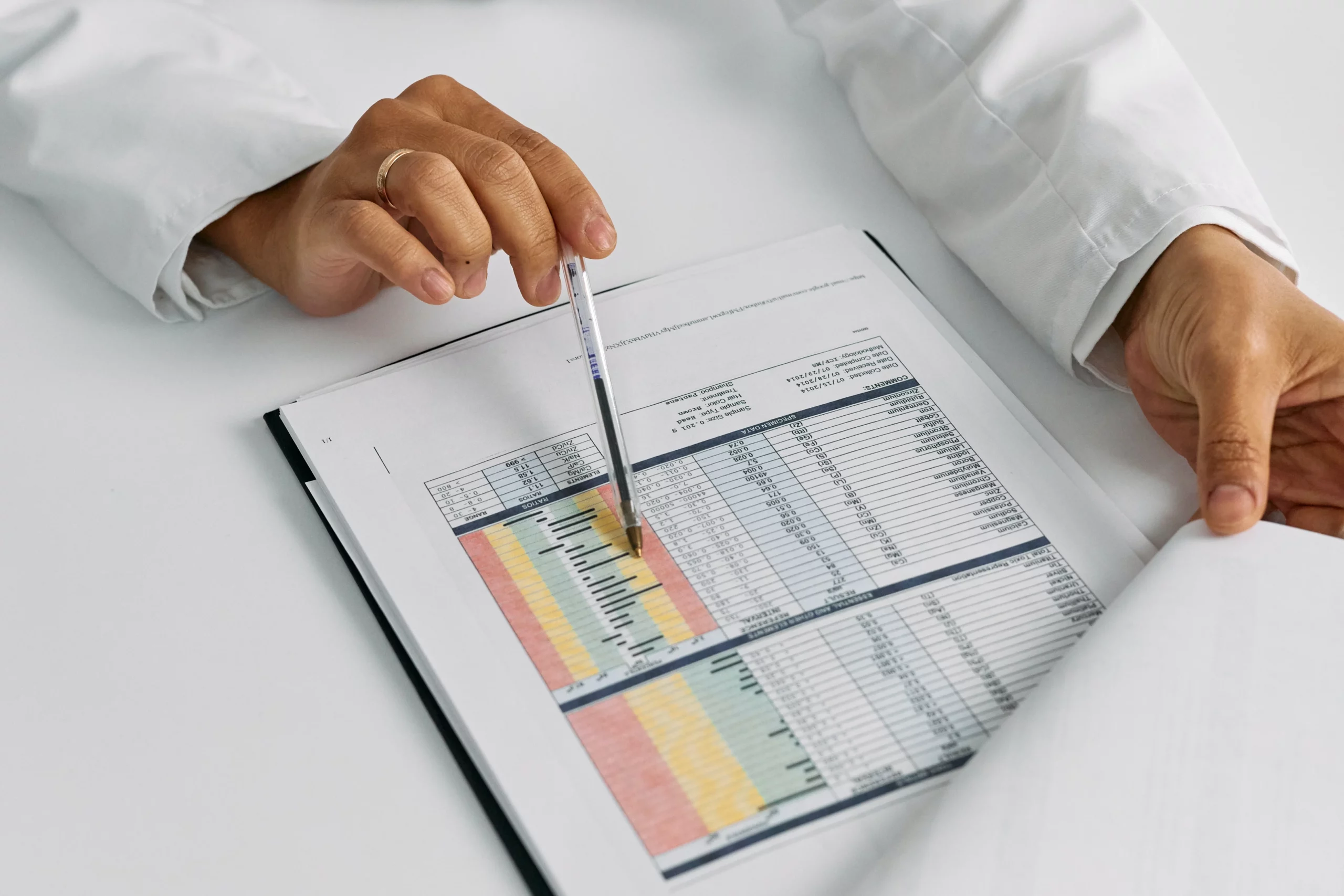Welcome to the Steer Growth Academy, our bi-weekly newsletter on LinkedIn, featuring a free article and a roundup of news and advice on marketing, hiring, healthcare innovation, and technology.
Don’t miss these other updates:
- CMS’ increase in the Medicare Advantage reimbursement rate for 2025 is significantly lower than the industry expected, causing insurers’ stocks to tumble. Find out what you need to know in our latest article from our CEO, Sridhar Yerramreddy.
- Join our webinar next Thursday, April 18th, at 12PM CT, while we demonstrate the benefits and clarify questions about our newest solution, SteerNotes™. Attendees will also receive a 60-day FREE trial!
Top Story: How Will GenAI Transform Clinical Note-Taking and Patient Documentation?
Accurate, timely, and consistent clinical documentation is key to facilitating inter-provider communication, providing evidence for legal records, permitting evidence-based healthcare systems to automate decisions, and allowing patients and doctors to read and understand potential next steps.
Proper documentation promotes patient safety and quality of care, ensuring that your patients get the right care at the right time.
Unfortunately, the majority of healthcare providers have been facing two major problems with clinical documentation:
- It is immensely time-consuming for providers during appointments
- Mistakes or errors can have significant consequences
According to Medscape’s 2023 Physician Compensation Report, providers spend 19 hours per week on paperwork and administrative tasks. Excessive documentation hours negatively impact provider job satisfaction, leading to burnout. They also decrease valuable patient-provider time, leaving patients dissatisfied.
In addition, health systems must overcome challenges in maintaining integrity and patient data security when manually documenting vital information. Health information databases contain sensitive patient information, including patient names and addresses, tests, diagnoses, treatment, and medical history. Lastly, patient visit records must be successfully integrated into existing EHR systems and automatically transmitted to relevant stakeholders without data loss, mishaps, or errors.
The current processes of patient documentation require timely solutions that can help alleviate the burden on staff and reduce the probability of data errors or sensitive information sharing. Now, experts have recently praised the technology for transforming clinical documentation. So, what’s all the hype about?
Can technology alone help solve patient documentation challenges?
In general, simple AI technology can already streamline patient documentation and reduce staff burden by ensuring a smooth and automated data transfer from recording a visit to storing the information in the correct patient record.
However, there is one particular technology the world is starting to explore more that can do much more than simply transcribing and transmissing notes: GenAI.
GenAI may completely revamp patient documentation. It can analyze unstructured data sets and conclude – a potential breakthrough for the healthcare industry, which is dealing with vast amounts of unstructured data, including clinical notes, diagnostic images, charts, and records.
Let’s take a closer look at why GenAI holds promise to deliver productivity and quality improvements faster than previous technologies.
How will GenAI change clinical documentation?
GenAI can significantly enhance clinical documentation by using advanced algorithms and machine learning techniques to analyze large volumes of data, including patient records, lab results, and clinical notes.
Right now, GenAI’s adaptability ensures more effective and accurate data processing and anonymization across various types of medical documentation, enhancing compliance with data privacy regulations. In addition, APIs make it easier to integrate GenAI third-party applications with the EHRs of the major vendors.
“We expect that GenAI will notch its early wins in healthcare delivery systems by addressing areas of waste and administrative friction, whether in creating a physician note, scheduling a patient appointment, or sending a bill or a prior authorization request to an insurance company,” Robert Wachter, professor and chairman of the department of medicine at the UCSF, and Erik Brynjolfsson, professor and director of the digital economy lab at Stanford University, said in a recent JAMA article.
“Experience gained in these areas will likely pave the way for broader implementation in areas that more directly affect patient outcomes and experience,” the professor added.
How Generative AI can deliver more accurate diagnoses and help with improved care outcome predictions
One of the opportunities that generative AI offers here is the automated provision of relevant information, such as medication, treatment plans, or diagnoses to patients. Not only can GenAI properly deliver the information to patients, but it can also incorporate it into automated communication.
This technology ensures patients are engaging with their treatment regimen while requiring zero effort from staff.
Of particular interest, however, is the possibility that GenAI could one day help diagnose diseases or make better medication suggestions than a doctor alone. As these tools become smarter, they can start to predict how likely a patient is to adhere to a medication regimen or return to the doctor’s office for a relapse, depending on patient data and medication data/treatment plan.
But these are just some of the predictions that experts have made so far. Before GenAI can be implemented that far, patient data privacy and ethical concerns about whether a machine should actually be able to diagnose, potential AI bias, and the ethical consequences of making data-driven predictions, must be addressed first.
Although there is still a long way to go, technology is making great strides every day, making it an imminent need to think about the role of GenAI in patient care.
Do you want to learn more about GenAI’s potential impact on patient documentation?
Join our webinar!
We’re inviting you to learn more about GenAI and its significance for clinical patient documentation during our webinar on Thursday, April 18th, at 12PM CT.
Our esteemed speakers include Sridhar Yerramreddy, CEO & founder of Steer Health, and a live testimonial from Dr. Kishori Somyreddy, a neurologist at Neurology Associates of Texas, who has been using patient documentation software during her care appointments.
Don’t miss out on this opportunity to gain valuable insights into patient documentation trends and how to ensure the ethical use of new technologies. Attendees will gain access to a 60-day free trial of our in-house patient documentation solution just for joining us.
Sign up today, and we hope to see you there!








